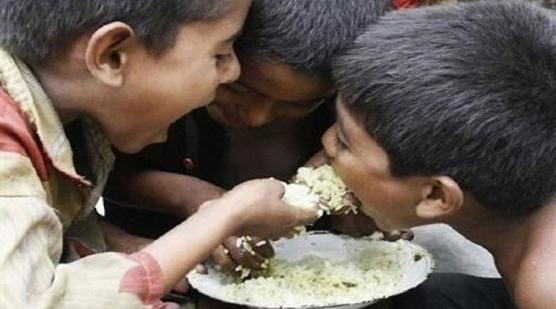Recently, for my British Literature class, I had to read the book Oliver Twist by Charles Dickens. While I appreciate the influence and legacy its had on literature, I personally didn’t enjoy it that much. I had a lot of trouble understanding it, to tell the truth, but there is one glaringly obvious topic that I did see a lot of in the book – poverty. Oliver Twist is probably one of the most well-known stories about poverty out there, if not the most well-known. It’d be pretty hard to read through it and not get anything from it about poverty. Oliver was born into a life of hardship and had to stay that way for a big chunk of his childhood. It made me wonder, if poverty was something people addressed back in the 1800s, why does it seem to get brought up less often now?
“Child as he was, he was desperate with hunger, and reckless with misery. He rose from the table, and advancing to the master, basin and spoon in hand, said, somewhat alarmed at his own temerity: ‘Please, sir, I want some more.’” This scene is one of the most iconic in not only literature, but all forms of media as a whole. The scene also displays how impoverished Oliver and his peers are, begging for seconds at the workhouse. At this workhouse, Oliver lived a harsh life amongst a group of thieves, who he felt uncomfortable hanging around with. His life was extremely unhappy until he was taken in by an upper-class family, although his life then was no walk in the park either. This scene also occurs very early in the novel as well, laying down the biggest theme of the novel right from the get-go.
As I said earlier, reading through the book and not being able to see anything about poverty in it would prove difficult. It’s such a central and important part of Oliver Twist that it was an easy candidate for the focus of an open letter. Although I have not lived through poverty myself, I’m a human being, and surely any decent human being would not want to see others suffer and live in poor conditions. In addition to that, I’ve had friends who lived through poverty, and their lives were very tough. They had little food, lived in small, run-down homes, and often had other personal issues that contributed to their status and affected their lives to be even harder.
The fact that even today, over 1.3 billion people – 1/7 of the total population! – live in extreme poverty is outrageous. The cost of living only continues to rise, pushing millions of families to the brink of poverty. However, many people seem to brush this problem aside and not think about it. This letter is to those people who don’t often think about poverty and its effects. Lots of other very important issues get brought up in the media all the time, and while I’m not trying to take the spotlight away from those problems, poverty is something that can affect anyone and I think we need to take more notice of it and do what we can about it.
As with nearly all issues, the only way we can make it better is to acknowledge and talk about it. It’s especially important for people to realize that poverty can affect anyone, and thus important for them to know what they can do to help where they can. One great and obvious way to help out is to donate to organizations that combat poverty, like The Borgen Project. You can also make calls and email local officials who could help, such as your state representatives. Simply spreading the word and making people more aware can make a big difference, too!
While Oliver eventually got taken in by an upper-class family, a lot of kids won’t have that kind of chance in real life. They live with the rest of their family in tough conditions, struggling day-in and day-out just to survive. Many people don’t realize just how hard those people have it, and don’t give much thought to those in poverty. Although there are plenty of other big, important issues being focused on right now, poverty is just as serious and critical to bring to light. We shouldn’t allow it to be a “side-problem” anymore. It negatively affects millions of people in the United States every day. It’s time we started treating poverty with the same passion that we dish out on other social issues.
















